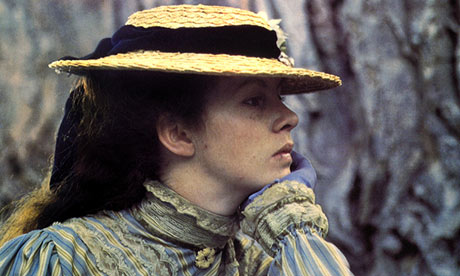
"Why do I write? Why does anyone write?" asks the teenage Sybylla, who dreams of pursuing a brilliant career as a writer, but, as she pens a book on "purloined paper", faces heartrending obstacles in 1890s rural Australia, from her family's poverty to societal misogyny. This impassioned debut novel by Miles Franklin – who bequeathed funds to establish the country's most prestigious writing prize, the Miles Franklin literary award – was written when its author was only 16 and glistens with precocious wisdom.
"I am afflicted with the power of thought, which is a heavy curse," writes Sybylla, whose intellectual and artistic talents are stifled in "stagnant" Possum Gully where she must toil beneath the burning sun, suppressing her "hot wild spirit". Lingering in the mind are Franklin's lush evocations of the Australian landscape, alternately loved and loathed. "My ambition was as boundless as the mighty bush in which I have always lived," writes Sybylla who becomes painfully stuck in the gap between aspiration and achievement. Drought means that "the cruel dazzling brilliance of the metal sky" oppresses her capacity to realise her inner brilliance.
Powerful tension develops between Sybylla's desire to fulfil her vocation and the feared shackles of marriage. Sent to live with her grandmother, she meets wealthy young Harry Beecham, who proposes marriage, but Sybylla is "utterly different to any girl" – and so too are her choices. Later, working as a governess, "the torturing maddening monotony" of life becomes a strain on her sanity.
The frustrations of family life are vividly illuminated by Franklin who was acutely affected, explains publisher Carmen Callil in her insightful introduction, by the "period of political and artistic ferment in Australia". First published in 1901, the novel was withdrawn due to "unwelcome notoriety" when it was critiqued as direct autobiography, but since 1966 it has never been out of print, and in 1979 was made into a film.
Franklin shines an intense light not only into the deep recesses of a bright young mind but on the dark corners of inequality caused by "the rope of class distinction". Indeed, the author is most searingly brilliant when depicting those who poignantly fail to achieve brilliance.

